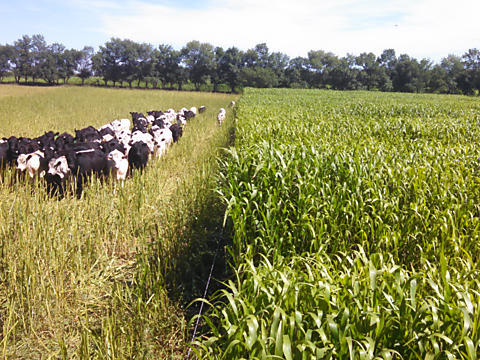As Congress gears up for debate over the next Farm Bill later this year, many of the subsidy programs meant to aid the agriculture industry are under fire from some of the very farmers they are designed to support.
In a new policy investigation, Farm Bill Sows Dysfunction for American Agriculture, several farmers across the United States sounded off about how crop insurance subsidies and other aid programs disproportionately benefit wealthier farmers, incentivize environmentally harmful practices, distort planting decisions in ways that ultimately impact our food supply, and discourage innovation amid everchanging weather and market conditions.
Agriculture subsidies have taken various forms since the first New Deal‐era Farm Bill was authorized by Congress, ranging from paying farmers to destroy their crops to lower supply in the 1930s, to transferring direct subsidies to farmers in the early 2000s.
Subsidized crop insurance is the most expensive program under the current iteration of the Farm Bill, with a total cost of over $17 billion.
The government subsidizes about 60 percent of the premiums for policies that farmers buy from private insurance companies, amounting to a record $11.6 billion in 2022. The government also pays those private insurance companies about $2 billion per year to cover their administrative costs.
While the rising cost of subsidized crop insurance may be a concern for taxpayers and the lawmakers who represent them, the many distortionary effects of the program are at the top of farmers’ minds.
“I don’t miss walking into those [government] offices and doing the paperwork and they know every single thing about my operation,” said one of those farmers, Gabe Brown, who attributes the success of his 5,000-acre North Dakota ranch to shifting his focus to regenerative agriculture and quitting all subsidy programs.
“And they say, ‘Oh, but it takes away your safety net.’ My safety net is the resiliency built into my soil,” said Brown. “My safety net is the health of the operation. My safety net is the fact that I don’t rely on only one or two commodities to make my income. We have 17 different enterprises on our ranch now. So I’m resilient—our ranch is resilient—because of the diversity and because of the health of the ecosystem. That’s very liberating. It’s a good feeling.”
Read the full policy investigation here, along with a visual feature here.


